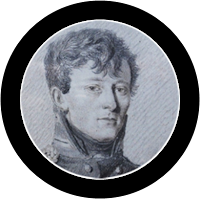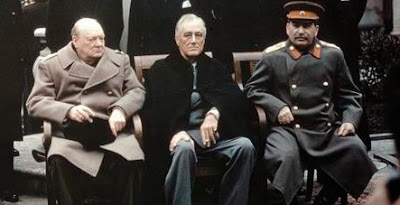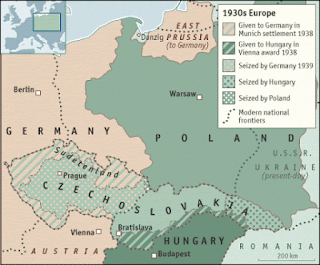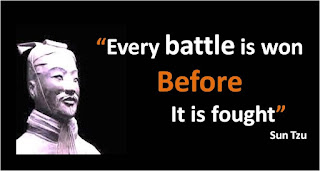Among all his work his prime piece “On War” was unfinished till his death which was later published by his widow Marie von Bruhl in 1832.
Clausewitz joined the Prussian army at the age of 12 where he first saw combat. After Prussia withdrew from French Revolution he engaged himself in education and joined Institute of Young Officers in Berlin where he evolved into a famous Kriegsakademie.
Impressed by his ability Gerhard von Scharnhorst(a key figure in the Prussian state during the upheavals of the Napoleonic wars and Chief of the General Staff in 1806) sponsored him and later became his mentor and a close friend.After the graduation, he was rewarded with the position of military adjutant to the young Prince August.
Clausewitz work was mainly influenced by Scharnhorst and other Prussian military reformers who perceived French Revolution was an astounding success because it was able to tap the energy of the French People. They believed that if Prussian was to survive as a state it has to do the same. This would require sweeping reforms (Political and Social) both in the state and the army(as both were suffered under the successors of Fredrick the Great). Therefore Clausewitz work was a strong reflection of social and military reforms. However, neither Clausewitz nor his mentor s wanted a social or political revolution but only changes which would help in preserving the independence of Prussia as a state and Power.
But this belief made him the target of both the conservative and the revolutionaries. What would what would one day be called “the primacy of foreign policy” made him odd among the liberals and the radicals who believed the constitutional government was the political goal surpassing all the others. Many writers tried to cast Clausewitz as a political hero or the villain in order to serve their political agendas but all in all, it proved to a futile exercise
Later in 1805 alarmed by the French victories over Austria and Russia; Prussia prepared for war in 1806. Confident in the leadership of Fredrick the Great Captain Clausewitz and other Prussian officers looked forward to the war with France but the timing and the implementation Prussia was poor and inadequate resulting I humiliating defeat at Battle of Jena and Auerstedt. Later at the time of retreat of the army Both Clausewitz and Prince August were captured. In the peace settlement, Prussia lost half of its territory and became an occupied French Satellite state.
The defeat was both a shock and the eye-opener for Clausewitz. He later recorded his impression on war and the socio-political conditions of Prussia In several short articles. He also composed the detailed critique of 1806’s Prussia which was so incisive that it was not published in Germany till 1880. It was titled “observation on Prussia in its great catastrophe”.
Later he started helping in restructuring both the Prussian society and the army in preparation for what he felt was an inevitable struggle against the French. He was responsible for the planning for a national insurrection against the French occupation, a movement that would require the involvement of people’s war along with the much reduced Prussian Army.
But his drive and enthusiasm against the French were not shared by the few including the King who was more concerned with maintaining his position in the much-reduced Prussian state than with any patriotic crusade against the French. In the bid for protecting his throne, he agreed to provide the Napoleon to assist in 1812 invasion of Russia. This proved to be the last straw for Clausewitz as he along with thirty officers resigned from Prussian service and joined the commission in the Russian army in order to continue his resistance against the Napoleon.
But before he left for Russia he prepared an essay on war for a 16-year-old Prussian Crown Prince Friedrich Wilhelm (Later King Friedrich Wilhelm-4{1840-1858}) as he was his military tutor. This essay was called “The most important principles of the art of war to complete my course of instruction for his Royal Highness the Crown Prince" (usually referred to as the "Principles of War”)
In Russia, Clausewitz spoke French (and English) as did many Russian aristocrats and Russian imperial family as well ethnic Germans in Russia and in Russian Forces but was hobbled for his ignorance of Russian language.
He fought in the slaughterhouse battle at Borodino and saw the disastrous French retreat from Moscow. He also played a key role in negotiating the “Convection of Tauroggen” which resulted in the defection of General H.D.L Yorck von Wartenburg’s Prussia corps from French Army. This move from the general infuriated King but eventually forced Prussia into anti-French coalition resulting directly to Napolean’s defeat and abdication in 1814 and resurrecting of Prussia itself.
As a deception, Scharnhorst arranged for him to serve as Russian liaison officer to Prussia army. But in reality, he was acting as an influential aide to General August von Gneisenau; Prussian Field Marshal and as one of the principal leader of Prussia’s rebirth.
Having done so much to challenge Prussia’s subjugation by France, however, Clausewitz was seen by many as a national hero. Later on, change of sides eventually led to his reinstatement in the Prussian army, as a full colonel in April 1814.
In 1815’s campaign, Clausewitz served as chief of staff of Prussia’s 3rd corps which fought at Ligny successfully disengaging itself from Prussian defeat. Later outnumbered 2-1 it played a crucial role at Wavre resulting in prevention of Marshal Grouchy's forces rejoining Napoleon at Waterloo.
In 1818 the king promoted Clausewitz to major-general and administrative head of General War College in Berlin. Having little to do with actual instruction at the school, Clausewitz spent his abundant leisure time writing studies of various campaigns and preparing the theoretical work which eventually became On War.
Because he had little to do with actual instruction at the school Clausewitz spent his maximum leisure time on writing papers on various campaigns and preparing his work “ON WAR”
He later returned to active duty in 1830 and was sent to Polish border as a chief of staff to Field Marshal. Before leaving he sealed all his unfinished manuscripts on the basis that this would free him from the ego or career concerns that might affect his style and conclusions.
Even though the war was averted, Clausewitz remained in the east trying to stop the outbreak of Cholera epidemic but later fall ill with cholera and died on 16 November 1831.He was 51 years old.
But this belief made him the target of both the conservative and the revolutionaries. What would what would one day be called “the primacy of foreign policy” made him odd among the liberals and the radicals who believed the constitutional government was the political goal surpassing all the others. Many writers tried to cast Clausewitz as a political hero or the villain in order to serve their political agendas but all in all, it proved to a futile exercise
Later in 1805 alarmed by the French victories over Austria and Russia; Prussia prepared for war in 1806. Confident in the leadership of Fredrick the Great Captain Clausewitz and other Prussian officers looked forward to the war with France but the timing and the implementation Prussia was poor and inadequate resulting I humiliating defeat at Battle of Jena and Auerstedt. Later at the time of retreat of the army Both Clausewitz and Prince August were captured. In the peace settlement, Prussia lost half of its territory and became an occupied French Satellite state.
The defeat was both a shock and the eye-opener for Clausewitz. He later recorded his impression on war and the socio-political conditions of Prussia In several short articles. He also composed the detailed critique of 1806’s Prussia which was so incisive that it was not published in Germany till 1880. It was titled “observation on Prussia in its great catastrophe”.
Later he started helping in restructuring both the Prussian society and the army in preparation for what he felt was an inevitable struggle against the French. He was responsible for the planning for a national insurrection against the French occupation, a movement that would require the involvement of people’s war along with the much reduced Prussian Army.
But his drive and enthusiasm against the French were not shared by the few including the King who was more concerned with maintaining his position in the much-reduced Prussian state than with any patriotic crusade against the French. In the bid for protecting his throne, he agreed to provide the Napoleon to assist in 1812 invasion of Russia. This proved to be the last straw for Clausewitz as he along with thirty officers resigned from Prussian service and joined the commission in the Russian army in order to continue his resistance against the Napoleon.
But before he left for Russia he prepared an essay on war for a 16-year-old Prussian Crown Prince Friedrich Wilhelm (Later King Friedrich Wilhelm-4{1840-1858}) as he was his military tutor. This essay was called “The most important principles of the art of war to complete my course of instruction for his Royal Highness the Crown Prince" (usually referred to as the "Principles of War”)
In Russia, Clausewitz spoke French (and English) as did many Russian aristocrats and Russian imperial family as well ethnic Germans in Russia and in Russian Forces but was hobbled for his ignorance of Russian language.
He fought in the slaughterhouse battle at Borodino and saw the disastrous French retreat from Moscow. He also played a key role in negotiating the “Convection of Tauroggen” which resulted in the defection of General H.D.L Yorck von Wartenburg’s Prussia corps from French Army. This move from the general infuriated King but eventually forced Prussia into anti-French coalition resulting directly to Napolean’s defeat and abdication in 1814 and resurrecting of Prussia itself.
As a deception, Scharnhorst arranged for him to serve as Russian liaison officer to Prussia army. But in reality, he was acting as an influential aide to General August von Gneisenau; Prussian Field Marshal and as one of the principal leader of Prussia’s rebirth.
Having done so much to challenge Prussia’s subjugation by France, however, Clausewitz was seen by many as a national hero. Later on, change of sides eventually led to his reinstatement in the Prussian army, as a full colonel in April 1814.
In 1815’s campaign, Clausewitz served as chief of staff of Prussia’s 3rd corps which fought at Ligny successfully disengaging itself from Prussian defeat. Later outnumbered 2-1 it played a crucial role at Wavre resulting in prevention of Marshal Grouchy's forces rejoining Napoleon at Waterloo.
In 1818 the king promoted Clausewitz to major-general and administrative head of General War College in Berlin. Having little to do with actual instruction at the school, Clausewitz spent his abundant leisure time writing studies of various campaigns and preparing the theoretical work which eventually became On War.
Because he had little to do with actual instruction at the school Clausewitz spent his maximum leisure time on writing papers on various campaigns and preparing his work “ON WAR”
Read: Clausewitz theory on war
He later returned to active duty in 1830 and was sent to Polish border as a chief of staff to Field Marshal. Before leaving he sealed all his unfinished manuscripts on the basis that this would free him from the ego or career concerns that might affect his style and conclusions.
Even though the war was averted, Clausewitz remained in the east trying to stop the outbreak of Cholera epidemic but later fall ill with cholera and died on 16 November 1831.He was 51 years old.





























.jpg)
